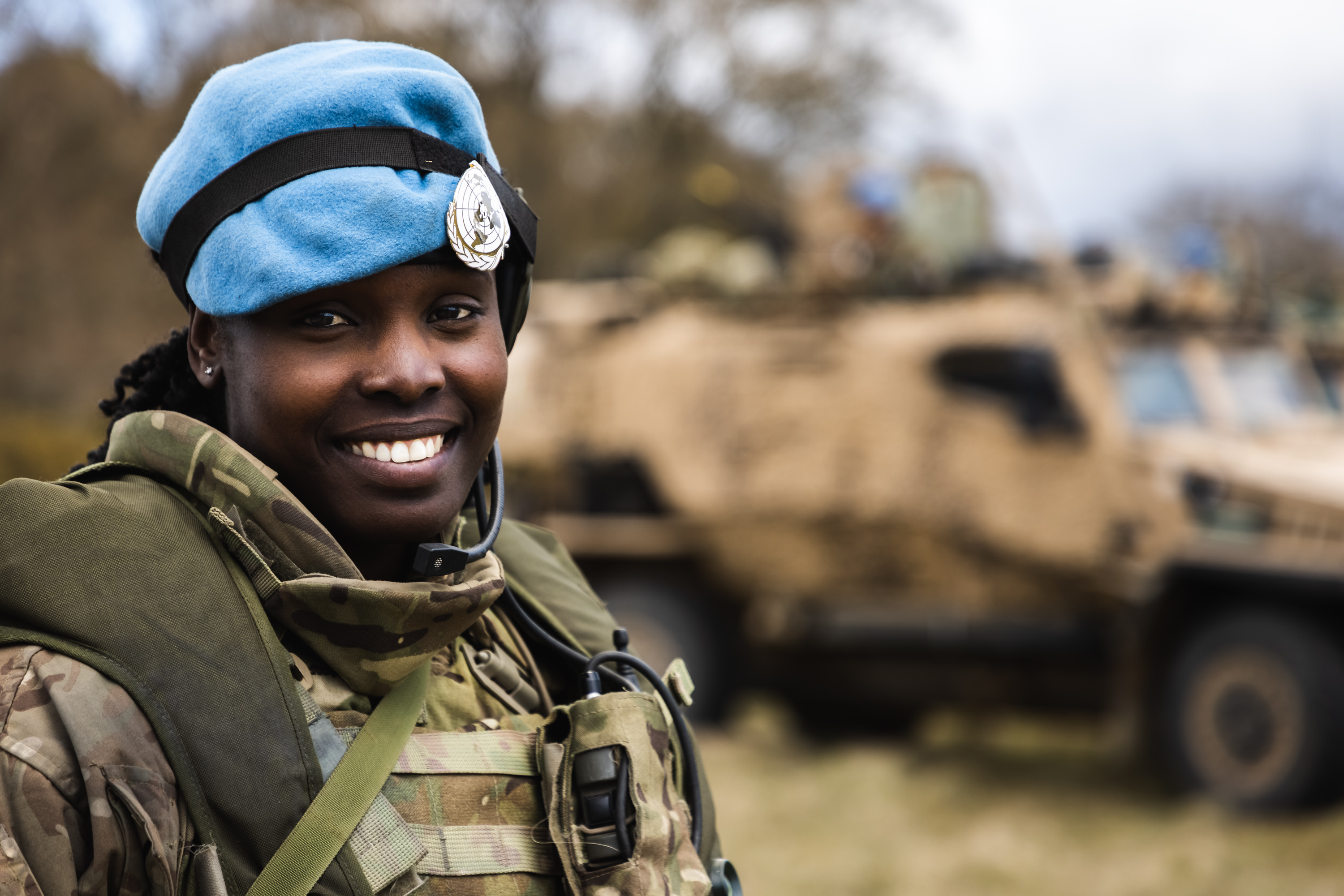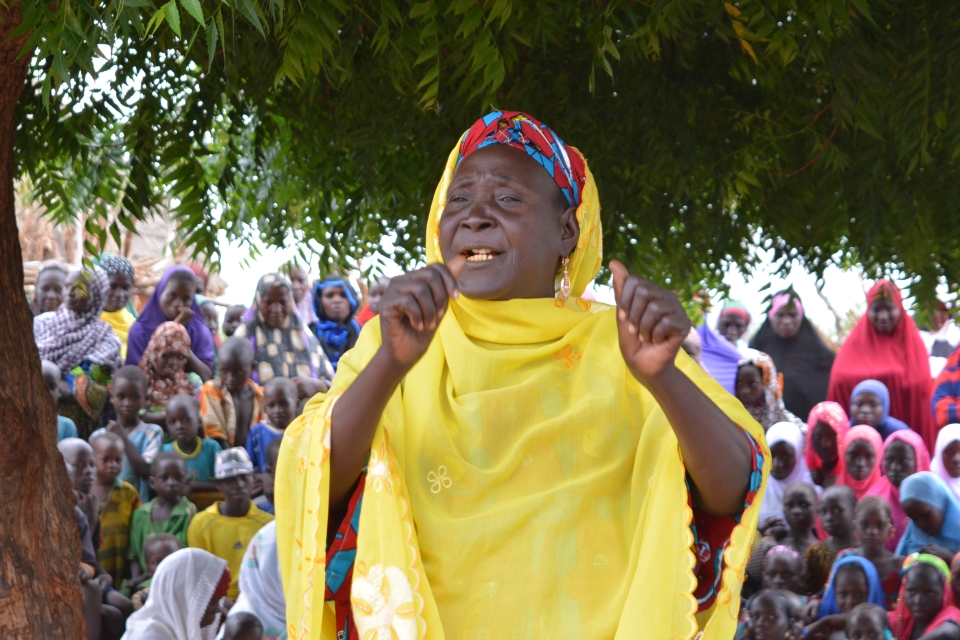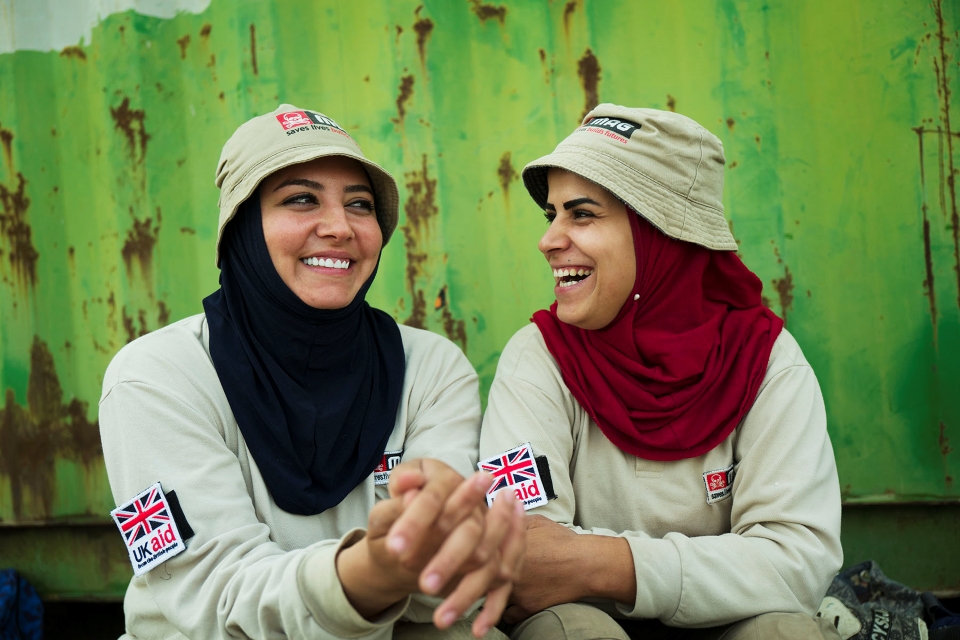Putting women, peace and security back on the agenda: the UK National Action Plan
Sarah Taylor and Major General Jules Buczacki explain how women’s equality and engagement can ensure sustainable peace and support our security worldwide.

Our TV and phone screens are increasingly flooded with images of the disproportionate impact conflict has on women. From Ukraine, we hear the horrific reports of women and girls of all ages raped by Russian soldiers. In Afghanistan, decades of progress towards gender equality has been wiped out in a matter of months as the Taliban strips away women’s fundamental rights.
Whilst we are familiar with the depiction of women and girls as victims of conflict, portrayals of women as part of the solution are harder to come by. We want to change that.
Changing the status quo
The Women, Peace and Security (WPS) agenda is about building a more representative and, crucially, more effective approach to preventing and tackling conflict. We know that states with greater gender equality are more peaceful, whilst gender inequality can be a strong predictor of the onset of civil war. We have seen that where women have been included substantively in decision-making and peace processes there is a greater chance of enduring peace. In Colombia for example, women played a key role in the Colombian Peace Process of 2016 and a gender perspective is included as a guiding principle in every chapter of the Peace Accord. And in the UK, Catholic and Protestant women’s groups joined forces in Northern Ireland to ensure they had a seat at the Belfast/Good Friday Agreement negotiating table, where they were turned to for help at critical moments in the process.
The first UN Security Council Resolution 1325 on WPS established over 20 years ago laid the groundwork for ambitious and concerted international action on this agenda. Despite this, we have seen almost no increase in the number of women at peace tables, women and girls programming remains significantly underfunded and we are witnessing the worrying rollback of women’s rights globally. We must do more to close the gap between words and action.

A female mediator in Niger trained through the UN Peacebuilding Fund with support from the UK.
The UK is working to do just that. The Ministry of Defence (MOD) Joint Service Publication on Human Security in Defence, launched in December 2021, expanded the way the MOD understands security, by paying closer attention to human beings and formalising the need for gender-sensitivity in all that it does. The Foreign, Commonwealth & Development Office’s Preventing Sexual Violence in Conflict Initiative (PSVI), now in its tenth year, has galvanised international action to prevent and respond to conflict-related sexual violence, putting victims’ needs at the centre of our approach. And our new International Women and Girls Strategy will put women and girls, in all their diversity, at the heart of everything we do, setting out how we will deploy all our levers, expertise and clout (diplomatic, development and security) to stand up for their freedom, power and rights. This is especially urgent work as we have seen progress stuttering and sometimes reversed by conflict, crises and those intent on rolling back the rights of women and girls. We will stand up and speak out for women’s rights and freedoms, and champion women’s leadership.
Launch of the UK’s new National Action Plan 2023 to 2027
The evidence is increasingly clear: women’s equality and engagement are critical to ensuring sustainable peace, and therefore to UK security and broader interests around the world. That is why the Foreign Secretary and the Minister of State for Armed Forces have jointly launched the new UK National Action Plan (NAP) on Women Peace and Security. The NAP, our fifth, sets out the UK’s strategic vision and delivery plan for how we will close that gap between words and deeds.
Mindful of the changing global context, our NAP 2023 to 2027 takes a new approach than previously. Recognising increasing geostrategic competition and that insecurity is not bound by borders, we have added a focus on transnational threats such as climate change and cyber, to ensure the distinct impacts on women and girls are not overlooked. We have also added Ukraine and kept Afghanistan as focus countries, reflecting evolving needs across the globe.

Two female deminers for UK Aid Match partner and landmine clearance charity MAG in Lebanon. Photo credit: MAG/Sean Sutton.
This NAP is also about embedding the agenda in our domestic systems and policies, as well as military cooperation and diplomacy. The NAP was developed with input from the Home Office, Ministry of Justice and Northern Ireland Office. The UK too has work to do and our civil society partners have rightly challenged us to be more ambitious and progressive in our objectives.
Finally, if we’re to make waves on this agenda, our focus must be on sustained impact. The new NAP will be supported by a robust monitoring and evaluation framework and accompanied by ministerial oversight, to hold us to account and ensure we deliver on our commitments.
The NAP needs YOU!
We have set the strategy, we have made our commitments clear – we must now make it a reality. The WPS agenda rests with all of us. It is only by working with our colleagues across government, our civil society partners and our allies across the globe in implementing this new NAP, we will progress the WPS agenda.
Read the new UK women, peace and security national action plan 2023 to 2027. If you want to know more, get in touch with our WPS team:
- Ministry of Defence: [email protected]
- Foreign, Commonwealth & Development Office: [email protected]